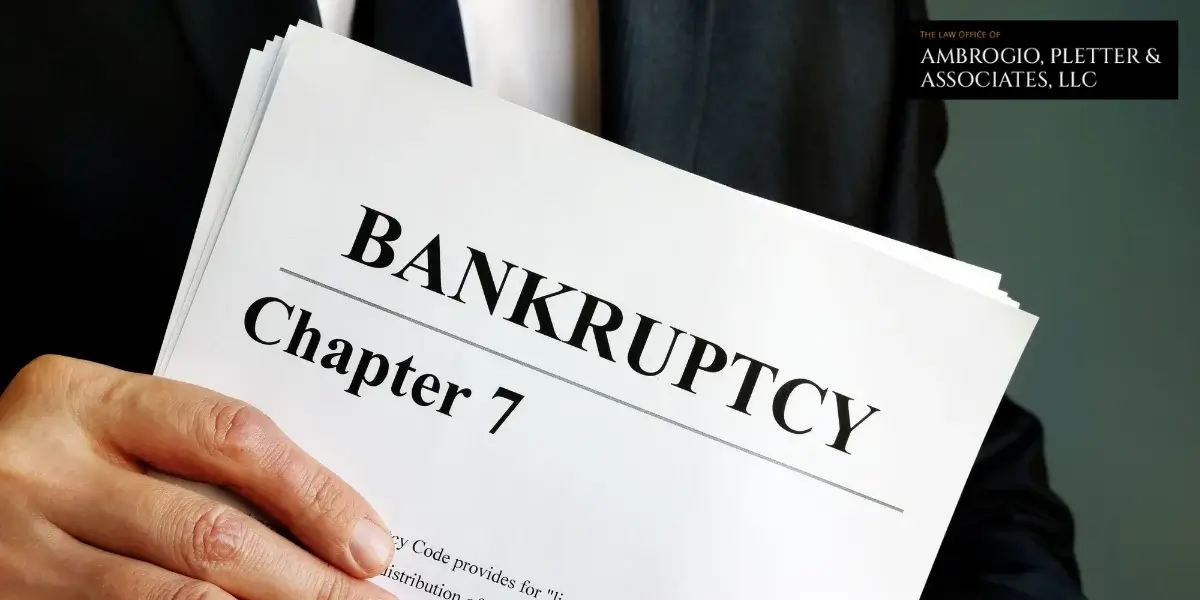A judgment lien is a legal claim against your property resulting from a judgment you have not paid. The lien allows creditors to take possession of or liquidate your property to cover the outstanding debt. Through Chapter 7 bankruptcy proceedings, you can remove a judgment lien, thereby allowing you to keep your property.
Milford Chapter 7 Bankruptcy Lawyer
Milford Chapter 7 Bankruptcy Attorney

Chapter 7 bankruptcy filing stands as a potential solution for individuals to regain stability when debts severely impact their well-being. For more than two decades, Milford Chapter 7 bankruptcy lawyer Tim Pletter has provided professional guidance to Chapter 7 bankruptcy clients from his Milford, CT, practice. He will evaluate whether Chapter 7 bankruptcy serves as the optimal resolution for your financial circumstances.
Contact Our Stratford
Bankruptcy Attorneys Today
To learn more about the benefits of bankruptcy and loan modifications
What Is Chapter 7 Bankruptcy?
Under Chapter 7 bankruptcy, individuals can legally discharge multiple financial liabilities, such as credit card debt, hospital bills, consolidation loans, and SBA business loans. Chapter 7 bankruptcy provides a solution for anyone who finds themselves unable to pay debts and faces overwhelming challenges.
When you file a Chapter 7 bankruptcy in Milford, your debts are discharged and permanently removed, with the added benefit that creditors can no longer make contact. People with uncontrollable financial burdens choose Chapter 7 bankruptcy for multiple reasons. The following debts are typically eliminated through Chapter 7 bankruptcy:
- High credit card debt
- SBA loans/business debt
- Medical bills
- Personal loans
- Creditor judgments
- Consolidation loans
- Debt from car repossession
Do You Qualify for Chapter 7 Bankruptcy?
Individuals must successfully complete the means test or demonstrate that most of their debt originates from non-consumer activities to qualify for Chapter 7 bankruptcy. Business-related debt falls under non-consumer debt and follows different regulations compared to consumer debt.
With an analysis of your means test, Attorney Tim Pletter will evaluate your six-month income history together with the total number of people in your household, which may consist of partners, stepchildren, and parents. Showing that you support other family members helps boost your likelihood of passing the test. Your eligibility depends on how your income stands in relation to Connecticut’s median income.
You are likely to clear the means test if your income remains under your state’s median level. However, passing the means test may still be possible through a detailed review of your monthly expenditures, even if your income surpasses the median figure. Attorney Tim Pletter will conduct a thorough examination of your financial circumstances and inform you of whether you meet Chapter 7 bankruptcy requirements for eligibility.
Benefits of Chapter 7 Bankruptcy
In 2023, Connecticut experienced 2,900 bankruptcy filings, with 2,315 being Chapter 7 cases, which means that approximately 80% of bankruptcy filings in Connecticut that year were Chapter 7 cases.
Clients typically select Chapter 7 bankruptcy because it results in debt discharge, which is a legal order from the court to eliminate their debts. Your creditors cannot contact you regarding discharged debts once their elimination is legally enforced through the bankruptcy court. This means that you will no longer receive phone calls, emails, text messages, or letters regarding your debt.
The permanent nature of a Chapter 7 discharge delivers essential relief from aggressive creditors. The process of filing for Chapter 7 bankruptcy helps remove existing judgments obtained by creditors.
The laws of Chapter 7 bankruptcy do not allow every type of debt to be discharged. Attorney Tim Pletter will assist you with identifying which debts are dischargeable and which debts cannot be discharged. Certain debts, like specific taxes and student loans, cannot be discharged, but you can count on Attorney Tim Pletter to make suggestions toward an optimal solution for your financial circumstances.
How Chapter 7 Bankruptcy Works
The Chapter 7 bankruptcy process commences when you submit your bankruptcy petition to the court. Attorney Tim Pletter and his legal team will manage all necessary documentation, including asset and liability schedules, income and expense reports, financial dealings, and any ongoing leases or contracts.
Your debts may be discharged within about three months of filing the petition. The process is designed to deliver immediate relief through its rapid and efficient nature. Chapter 7 bankruptcy stands out because it removes your debts without needing a repayment plan, which gives you a fresh financial start.
You will need to attend a 341 Meeting of Creditors after filing to respond to basic inquiries about your financial situation. Attorney Tim Pletter will guide you through the hearing preparation process so that you are prepared to answer any questions about your finances that arise.
The pandemic has made it possible to conduct these hearings through Zoom, which allows clients to participate with greater ease. Clients typically attend these hearings either at the Ambrogio, Pletter & Associates, LLC office or from their personal residences.
FAQs
Contact Ambrogio, Pletter & Associates, LLC
If you are considering filing Chapter 7 bankruptcy, contact Ambrogio, Pletter & Associates, LLC today. Attorney Tim Pletter will assist you in the legal process to guide you toward peace of mind.
Take Action Today & Begin Moving Forward
Attorney Tim Pletter works directly with his clients, and most of your contact will be directly with him. Please contact our Stratford, Connecticut, office today to arrange your free consultation


